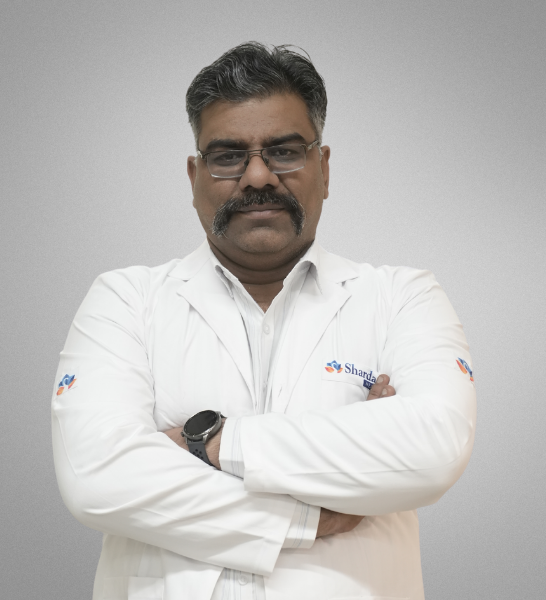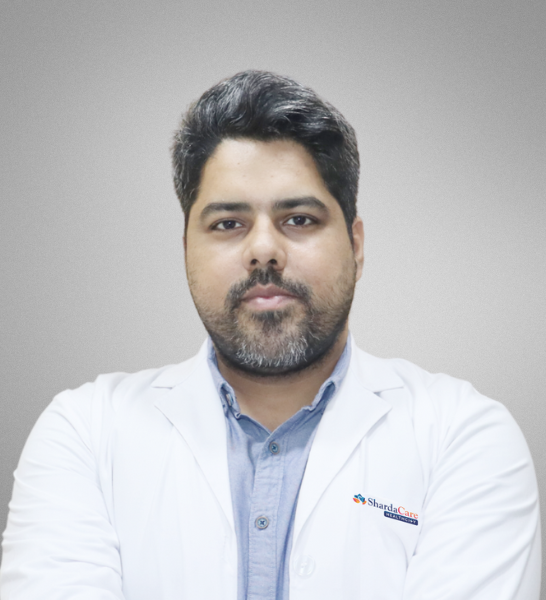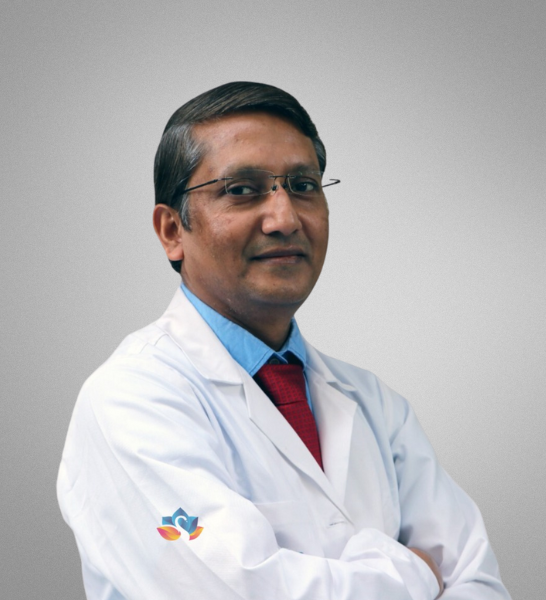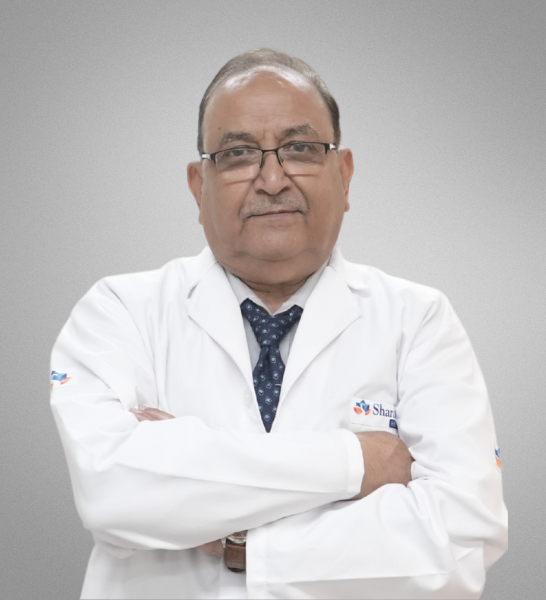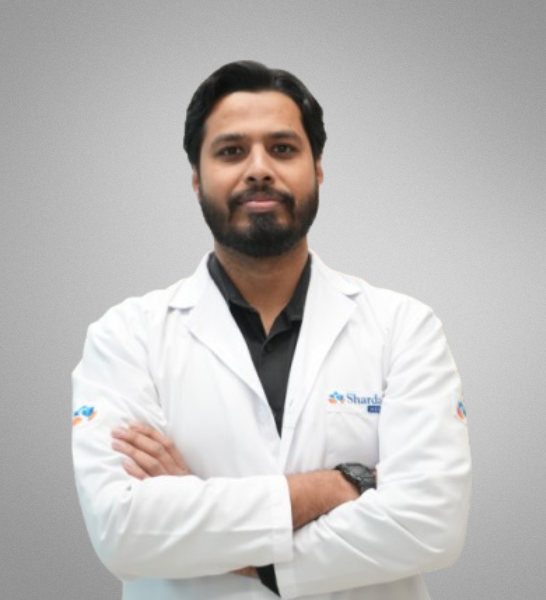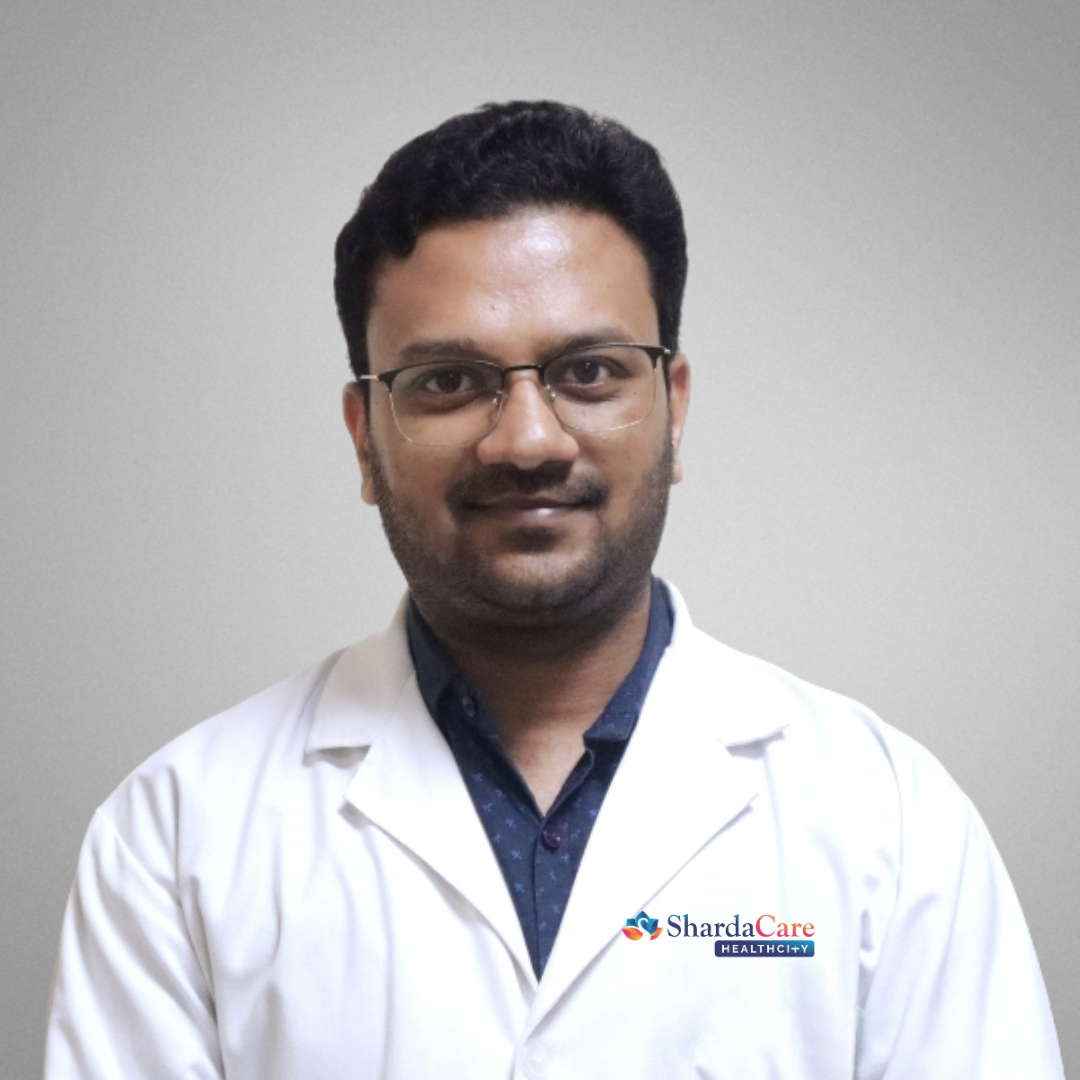
Orthopaedics
At Sharda Care - Healthcity , our Orthopaedics Department provides comprehensive care for a wide range of orthopaedic conditions, including issues with the Knee, Hip, and Joints. Orthopaedics focuses on managing ailments of the Musculoskeletal system, which encompasses the body's structure and mechanics. Our specialized doctors diagnose and treat conditions affecting Bones, Joints, Muscles, Tendons, Ligaments, Cartilage, and Nerves across all age groups. This multidisciplinary field addresses Fractures, Joint Injuries, Degenerative Conditions, and Congenital Anomalies, Aiming to restore mobility, Alleviate Pain, and enhance the quality of life for individuals worldwide.
Within orthopaedics, various subspecialties cater to specific aspects of musculoskeletal health
- Sports Medicine
Dedicated to athletes' well-being, sports medicine orthopaedists diagnose, treat, and prevent injuries related to physical activities, ensuring swift recovery and improved performance.
- Orthopaedic Trauma
Addressing severe musculoskeletal injuries like fractures and dislocations, orthopaedic trauma specialists employ surgical and non-surgical approaches for effective treatment.
- Paediatric Orthopaedics
Focused on children and adolescents, paediatric orthopaedic doctors handle congenital anomalies, growth plate injuries, and developmental disorders with expertise.
- Hand Surgery
Specialists in hand surgery resolve conditions affecting the hand, wrist, and forearm, including fractures, nerve and tendon injuries, and issues like carpal tunnel syndrome.
- Foot and Ankle Treatment
Covering ailments of the feet and ankles, this subspecialty treats fractures, ligament injuries, deformities, and sports-related issues.
- Spine Treatment
Spine specialists diagnose and manage spinal conditions such as degenerative disc disease, spinal stenosis, and spinal tumours through surgical and non-surgical methods.
- Orthopaedic Rehabilitation
This team focuses on post-surgical or injury rehabilitation, devising tailored programs to enhance mobility, strength, and function, optimizing patient outcomes and quality of life.
- Treatment Techniques Used in Orthopaedics
Orthopedics employs a variety of methods and procedures to diagnose, treat, and manage musculoskeletal conditions, offering a spectrum from conservative measures to surgical interventions.
- Physical Therapy/Rehabilitation
Integral to orthopaedic care, physical therapy incorporates exercises and modalities to improve strength, flexibility, and range of motion. Therapists employ manual techniques, therapeutic exercises, ultrasound, and electrical stimulation to aid in injury recovery and chronic condition management.
- Orthotics and Bracing
Supporting the musculoskeletal system, orthotics and braces, including shoe inserts, knee braces, and spinal braces, correct alignment issues, alleviate pain, and prevent further injury.
- Pharmacotherapy
Medications like NSAIDs, analgesics, muscle relaxants, and corticosteroids are prescribed to manage pain and inflammation.
- Injections
Delivering medications directly to affected joints or tissues, injections such as corticosteroids, hyaluronic acid, PRP, and stem cells alleviate pain, reduce inflammation, and promote healing.
- Minimally Invasive Procedures
Minimally invasive techniques, like arthroscopy and percutaneous fracture fixation, minimize tissue damage, reduce pain, and expedite recovery.
- Orthopaedic Surgery
From joint replacements to fracture repairs and spinal fusion, orthopaedic surgery addresses a range of musculoskeletal conditions, restoring function and mobility.
- Traction and Manipulation
Traction relieves pressure on the spine or joints, promoting realignment, while manipulation enhances mobility and reduces pain through controlled joint movements.
- Benefits of Orthopaedic Treatment
Alleviated pain
Enhanced functionality
Increased range of motion
Fracture repair
Tumor removal
Looking for an Expert
Sharda Care The Healthcity is home to some of the eminent Doctors in the world.
Book an Appointment

